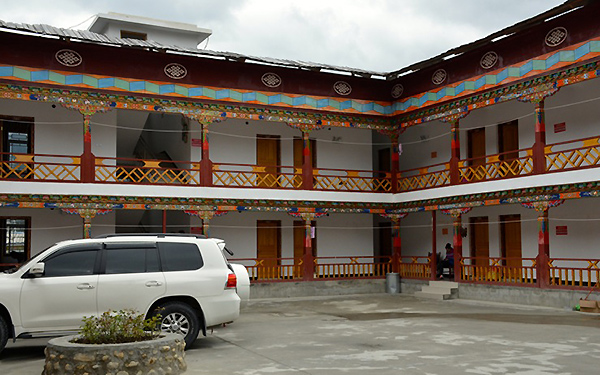 |
|
Pasang Tsering's family inn. [Photo by Chen Bei/chinadaily.com.cn] |
It was not until 2003 that he realized he could earn more in other ways.
One evening around sunset, a backpacker knocked at his door asking to stay over. The sightseer left 40 yuan the next morning, plus some words that stunned him.
"We are cheesed off with the hustle and bustle of big cities, looking for a break in a green wonderland like here," said the man, who was from Tibet's capital Lhasa, about 410 km from the village. "But why are you all logging?" he asked.
Looking around, Pasang realized for the first time that the mountains had changed greatly – less green, less vital. The animals of his memories – bears, wild Marco Polo sheep and macaques – had almost disappeared.
The village could not live solely on the forest for generations unless the trees were well protected – that was a lesson. Pasang believed the Buddha had sent the backpacker to teach him.
Logging ban
The same year, the local government began to ban commercial logging in virgin forests.
"We overemphasized timber manufacturing for economic development in the 1980s and 1990s at the expense of a fragile forest ecosystem," said Tashi Dondrub, director of the Nyingchi Forestry Bureau.
Read more: Tibetan drivers to finally see the end of 'death road'
"The case of Tashigang was not alone in Tibet during that period, and large-scale wood-cutting led to a decreasing number of endangered birds and animals as well as the frequent incidence of landslides".
But what would life be like after commercial logging was prohibited?
It became an urgent issue for the government, according to Tashi. "The injunction would mean nothing if we didn't help find new economic growth modes to raise villagers' incomes," he said.
"The ban did not immediately stop axes chopping through forests," Pasang said. He explained most villagers had lived by logging for nearly 20 years, which made it difficult to find new ways to earn money.
It was in 2005 that an effective brake was put on illegal logging, thanks to a national guide on the management of public forests.
The central government began earmarking 5 yuan for the protection of every mu (0.066 hectare) of forest, with 3 yuan going to a ranger and 2 yuan for local governments to buy saplings.